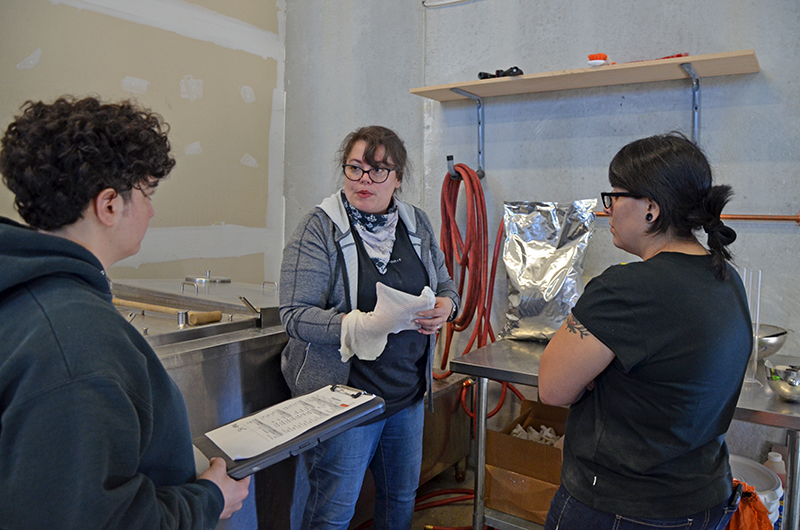
Local women get introduction to brewing
The world of craft brewing is largely a male-dominated industry. Female brewers are few and far between. So during Women’s History Month some local women got together to learn the tricks of the trade at Homewood’s Rabid Brewing, led by a woman, R

